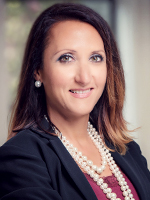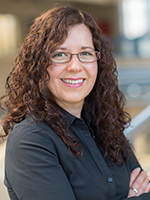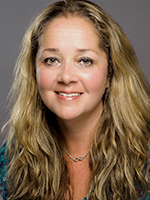
In honour of Mother’s Day, we asked three VCHRI scientists to share their wisdom about motherhood, work, and the notion that women need to do it all.

Q: Does work/life balance even exist, or is it a mythical concept?
A: Mommy guilt hit me like a freight train when my oldest child, now 11, was in kindergarten and I was out of town at a conference on the day that her kindergarten class was singing at a seniors’ home. Through tears, she said to me, "All the other mommies in the class were there. Where were you?" In that moment, I knew that work/life balance was achievable only in the most superficial way. Yes, the flexibility of academia meant that I could leave work at noon to attend an important assembly at my kids' school (while putting those missed hours in long after my kids were asleep). I also could attend scientific meetings important to my academic growth, while keeping on top of at-home commitments through hotel room Facetime calls. However, mommy guilt followed me in both arenas. I consistently felt a step behind my colleagues without children, who had the ability to work late to get a grant completed before the deadline, whereas 'Missed Deadlines' had become my middle name. Mommy guilt also followed me in my personal life, where I found myself feeling inferior to parents whose schedules gave them the flexibility to drive their children to school, and attend every performance. Once I accepted that – for me – work/life balance was not only unattainable but, in fact, a destructive aspiration, the sting of mommy guilt finally began to lessen.
Q: What would you say to mothers who feel that heavy societal pressure to balance it all and be the perfect parent, partner, and employee?
A: About five years ago, a group of academic moms in my field and I decided, after sharing similar experiences about work-life imbalance (and a glass of wine), that we would meet as a group annually and use the time together to honestly and non-judgmentally support one another in our struggle with perpetually juggling academic life with the demands of parenthood. We each take turns discussing our joys and challenges in the personal/professional dance, and we laugh and we cry with one another. We each set a personal goal and commit to the group that we will try to accomplish that over the next year. Based on the immense support and validation I receive from this group of amazingly accomplished academic moms, I would encourage others to similarly seek community in like-minded individuals. You can all celebrate work-life imbalance together!

Q: How does a parent survive the teen years?
A: When my kids were quite little I was very worried about surviving the teenage years. The late, wonderful Clyde Hertzman, an early childhood expert, put my mind at rest with a simple piece of advice: “Keep the lines of communication open.” Much of my success at navigating the teen years comes from their understanding that they can tell me or ask me anything without judgment from me (insert qualifier here that this can be VERY difficult at times). But if you want them to keep talking to you – you need to reserve judgment and you need to be willing to listen to them at any time even if the moment is not convenient for you (my grant is due in two hours!).
Every stage of parenting has been weird and wonderful but there is something special about the teenage years. They can go skiing/boarding with me on the ‘big’ runs, they can beat me up the Grouse Grind, navigate the public transportation in a strange city better than me, suggest books/articles for me to read, debate politics, go to 14A movies (goodbye G movies!) and even on occasion give thoughtful, fantastic gifts (goodbye misshapen pottery knickknacks!). The hardest thing about the teen years: when it’s time to let them go.
Q: How has being a professional health researcher and neuroscientist made you a better mom?
A: In some ways it’s made me more relaxed about things that other parents may stress about. For example, I understand that sleep is very important for the developing brain, so I am never angry when my kids sleep in (unlike my own father). However, sometimes, being a researcher can make me more vigilant about a peculiar headache or rash my child is experiencing. As a neuroendocrinologist I study the powerful effects of gonadal hormones on the brain. So I have a particular understanding of how hormones affect the brain and body during puberty. My son is two years older than my daughter and as girls go through puberty earlier than boys our household was a rockin’ hormonal/pubertal zone for a couple of years. Sometimes I’d say, “What is wrong with you today?” and the answer invariably would be, “Mom - it’s my hormones!” Maybe they got away with more, but I’d always knowingly nod my head and give them a wide berth. Also, I haven’t shied away from teaching my kids about the wonderful world of the brain, and at an early age they quickly learned to spell words like “neurogenesis” and “hippocampus.” I doubt either of them will end up as a neuroendocrinologist, but my kids have certainly picked up a love of science and passion for learning.

Q: What would you say to mothers who feel that heavy societal pressure balance it all and be the perfect parent, partner, and employee?
A: For me it has been about reminding myself that it is about the journey not the race - as a parent and as a scientist. I know that I have to embrace the feeling that i) Nothing is ever finished, ii) I am pulled in a few directions all the time, and iii) I can't do it all at once (sometimes one or the other is compromised). I am lucky to have some terrific mentors who are scientists and mothers, I am also very lucky to have a supportive family who can pick up the slack when work is crazy. I really feel so very fortunate to be able to be a parent and balance an exciting career - I try to practice gratitude in the moments I feel like I am dropping it all! Practically speaking, during my Post-Doc, I hired someone to clean my house once a week - this continues to be indispensable.


